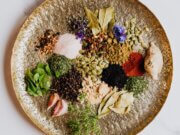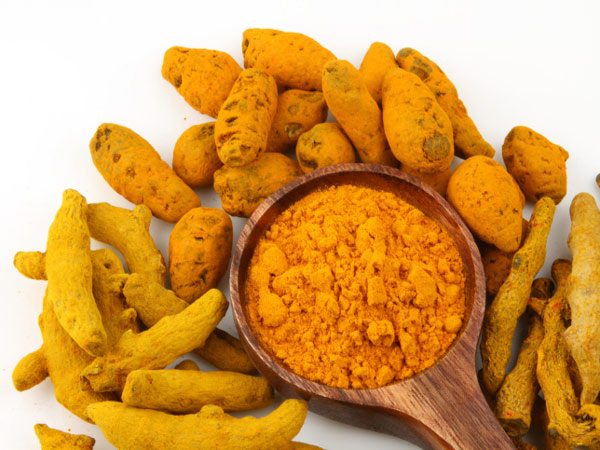It's time to tap into Turmeric's incredible healing powers!

Photo credit: http://mefirstliving.com
Home Remedies
General Well-Being
What To Look For When Buying Turmeric
Cooking, Culture, Diabetes, Digestion, Flavour, Hair, Health, Skin, Skincare, Spices, Wellbeing, Wellness
Dr. Shireen Fernandez, M.D.
Author
Physician & Founder of Dr. Shireen's Wellness Living, Dr. Shireen's Health Wellness Program™ redefines the concept of wellness through prevention, nutrition and non-invasive natural remedies.
She’s also the founder & CEO of
COMMENTS
YOU MAY ALSO LIKE
-

Savouring South Asian Style: Elevate Your Home Decor with Cultural Flair
-

6 Ways To Create Fun Quality Time With Your Kids & Parents That Both Will Love!
-

Celebrating South Asian Literature: Must-Read Books by Female Authors
-

Flavourful Festivities: Traditional Holi Recipes To Spice Up Your Table
-

The Living Luxe Design Show Presented By JennAir Announces Powerhouse Program Of Speakers
-

7 Ways Yoga Will Save Your Mental Health
-

Ask Dr. Monica Vermani: How Can I Convince My Friend That Her Threatening Boyfriend Is The Problem, Not Me?
-

10 Tips To Manage & Survive Long-Distance Relationships
-

Ask Dr. Monica Vermani: I'm Afraid My Childhood Bully Will Be Back In My Life, What Do I Do?
-

Ask Dr. Monica Vermani: How Do I Create "Me Time" In My Demanding Life?
-

Hot Spot Alert: Mishree Cocktails & Cuisine Exhilarates With South Asian X Middle Eastern Cuisine
-

BioAro Founder Dr. Anmol Kapoor Wants You To Be The CEO Of Your Health
-

Savour the Holidays With This Paneer Pakora Recipe By KFI Sauces!
-

Here's How To Craft And Achieve Meaningful New Year's Resolutions
-

Snack It Up This Holiday Season with Indian-Inspired Potato Wedges by KFI Sauces
-

Butter Chicken Nachos Recipe By KFI Sauces Is Perfect For Your Holiday Spread
-

Ask Dr. Monica Vermani: How Do I Tell My Friend She's Taking My Emotional Support For Granted?
-

Anjali Pathak of Patak's Shares Her Favourite Recipes For The Holiday Season
-

Ask Dr. Monica Vermani: Why Does Our Family Get Togethers Always End With A Fight?
-

Ask Dr. Monica Vermani: How Do I Tell My Sis-In-Law To Stop Intruding In My Daughter's Wedding Plans?
-

Event Alert: The Auric Living Conference Brings Holistic Healing To Toronto
-

Ask Dr. Monica Vermani: I'm On The Outs With My Friend Because I Supported Her Breakup What Do I Do?
-

Event Alert: The Desai Foundation Rings In 10th Anniversary of "Diwali On The Hudson" Gala
-

South Asians & Arthritis: Busting Myths And Sharing Facts About This Disease In Our Community
-

Ask Dr. Monica Vermani: How Do I Convince My Kids That My Granddaughter's Best Friend Is A Bully?
-

Make Your Brunch Brilliant With This French Buckwheat Crepes & Dosas Recipe!
-

Ask Dr. Monica Vermani: How Do I Tell My Sis-In-Law That Her Messy Dog Is Not Welcome At My House?
-

You Just Need A Hot Pot To Make This Amazing Masala Style Vegan Tomato Soup
-

Ask Dr. Monica Vermani: How Do I Tell My Friend To Stop Interrupting Me?
-

Ask Dr. Monica Vermani: How Do I Trust My Husband After He Cheated On Me?
-

Check Out This Insane Recipe For Mini Masala Idli
-

Ask Dr. Monica Vermani: How Do I Tell My Brother That His Cottage Rules Ruins All The Fun?
-

Ask Dr. Monica Vermani: What Do I Do When My Fiancé Shares His Dog With His Ex?
-

Ask Dr. Monica Vermani: How Do I Convince My Partner That Our Six-Year-Old Is To Young For Sleepovers?
-

Ask Dr. Monica Vermani: How Do I Deal With My Friend Who Always Wants To Start A Fight?
-

Here's Why Paris Calls Tharshan Selvarajah The Best Baguette Baker In The City
-

Ask Dr. Monica Vermani: Help! My Bestie Roommate Is A Nightmare
-

Pride 2023: Why Is India's Supreme Court Taking So Long To Legalize Same Sex Marriage?
-

Ask Dr. Monica Vermani: My Love Constantly Wants To Be With Me And I'm Exhausted
-

The Coronation Of King Charles III Was A Global Desi Affair
-

Ask Dr. Monica Vermani: My In-Laws Introduces Our Kids As Their "Adopted" Grandkids
-

Ask Dr. Monica Vermani: Help! My Office Romance Wants To Keep Us A Secret
-

The Dishes That Asha Bhosle Wants You To Try At Her Resto Asha's In Dubai
-

Ask Dr. Monica Vermani: My Rude Friend Is Mortifying!
-

Tour The World At Dubai's Amazing Global Village
-

Ask Dr. Monica Vermani: I Had A Miscarriage And Our Family's "Be Grateful" Sentiments Really Hurt
-

Ask Dr. Monica Vermani: Help! My Underage Nephew Expects Me To Buy Booze For Him
-

Warm Up To The Fusion Delights Of Ushna in Dubai
-

Ask Dr. Monica Vermani: My Boyfriend Is Pressuring Me To Attend His Sister's Wedding But I Can't Afford It
-

IWD 2023: 11 Inspirational Quotes From Powerful South Asian Women
-

Ask Dr. Monica Vermani: Help! My In-Laws Are Giving Me The Cold Shoulder
-

7 South Asian Female Fitness Pros Who Will Level Up Your Workouts

























































